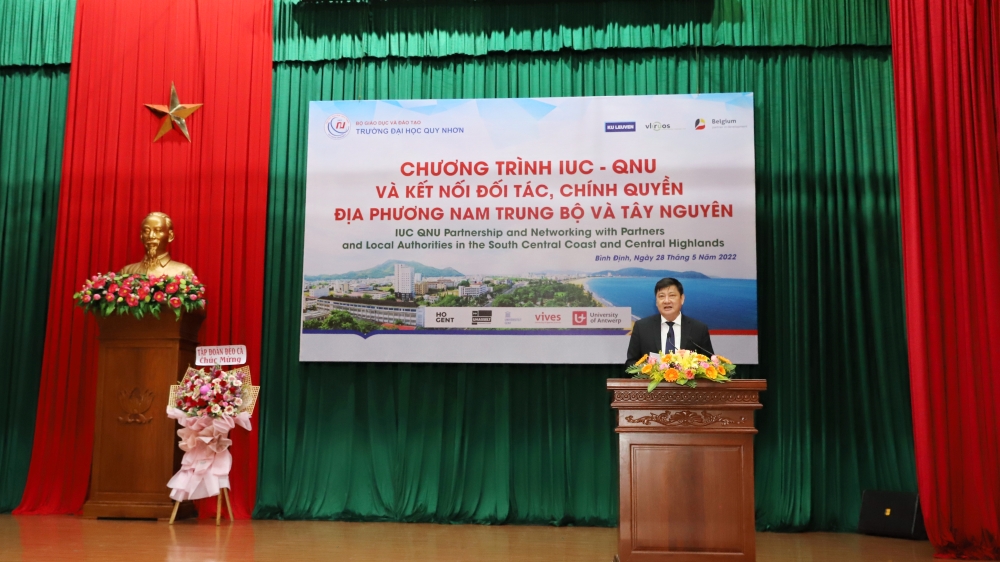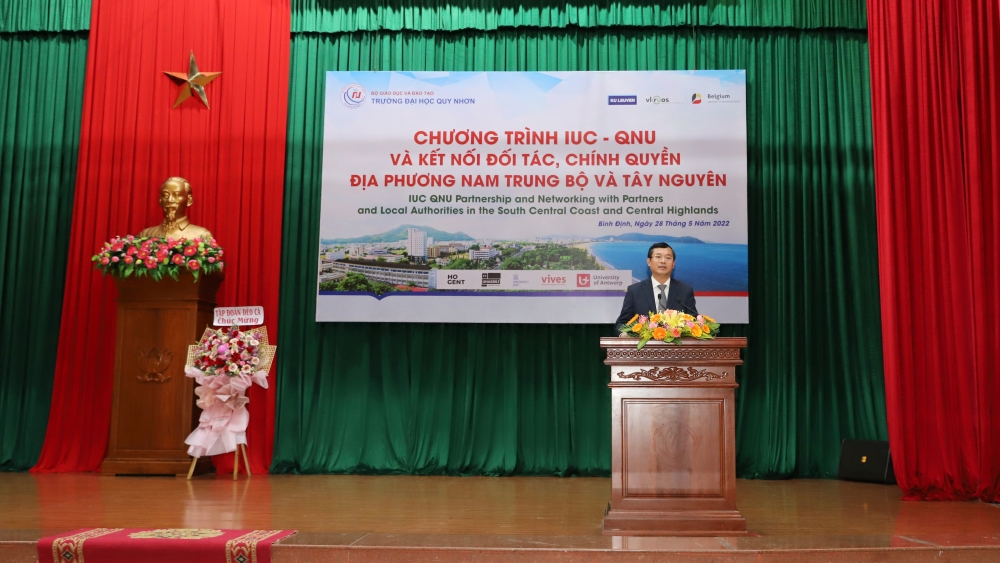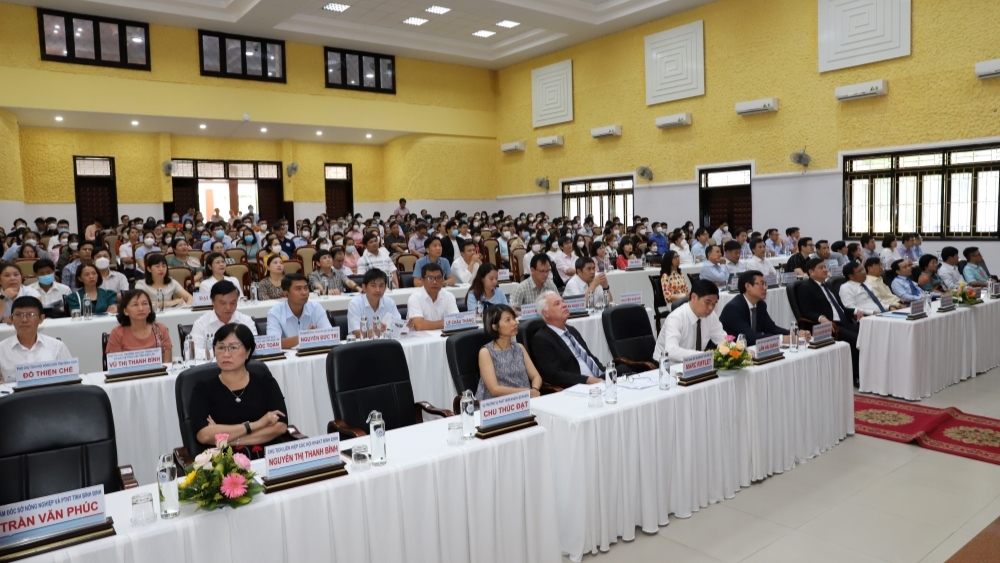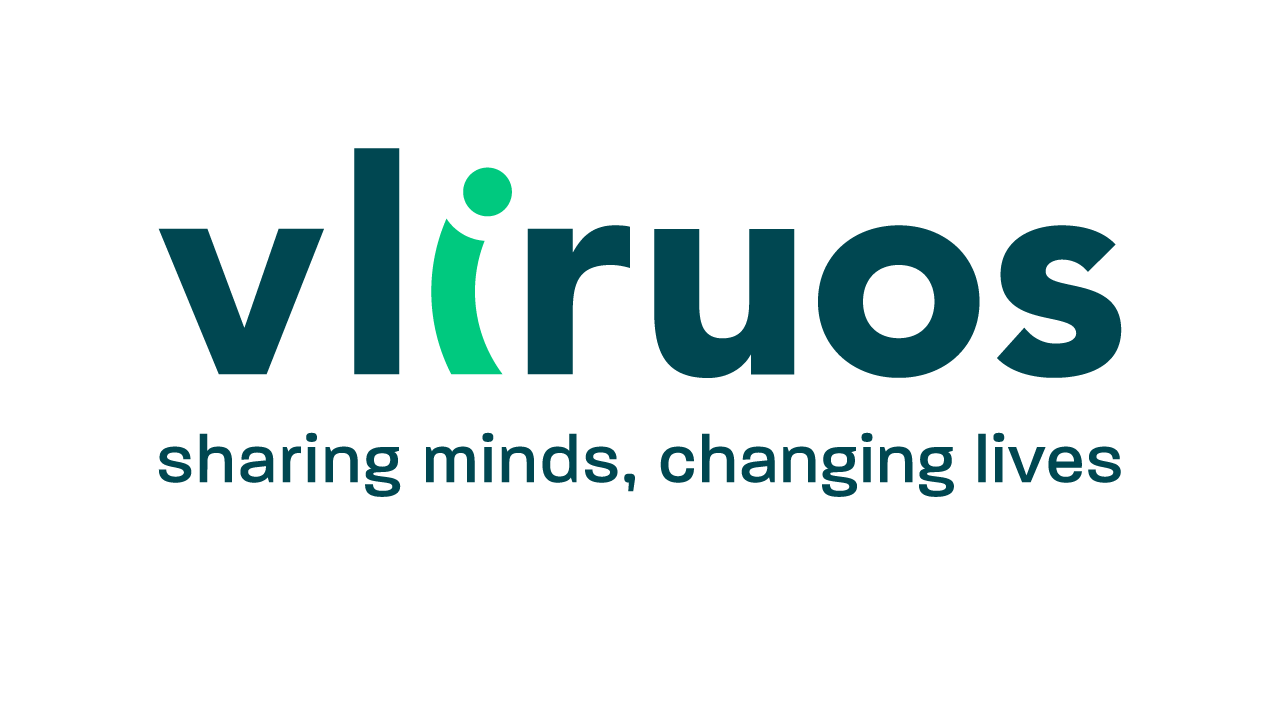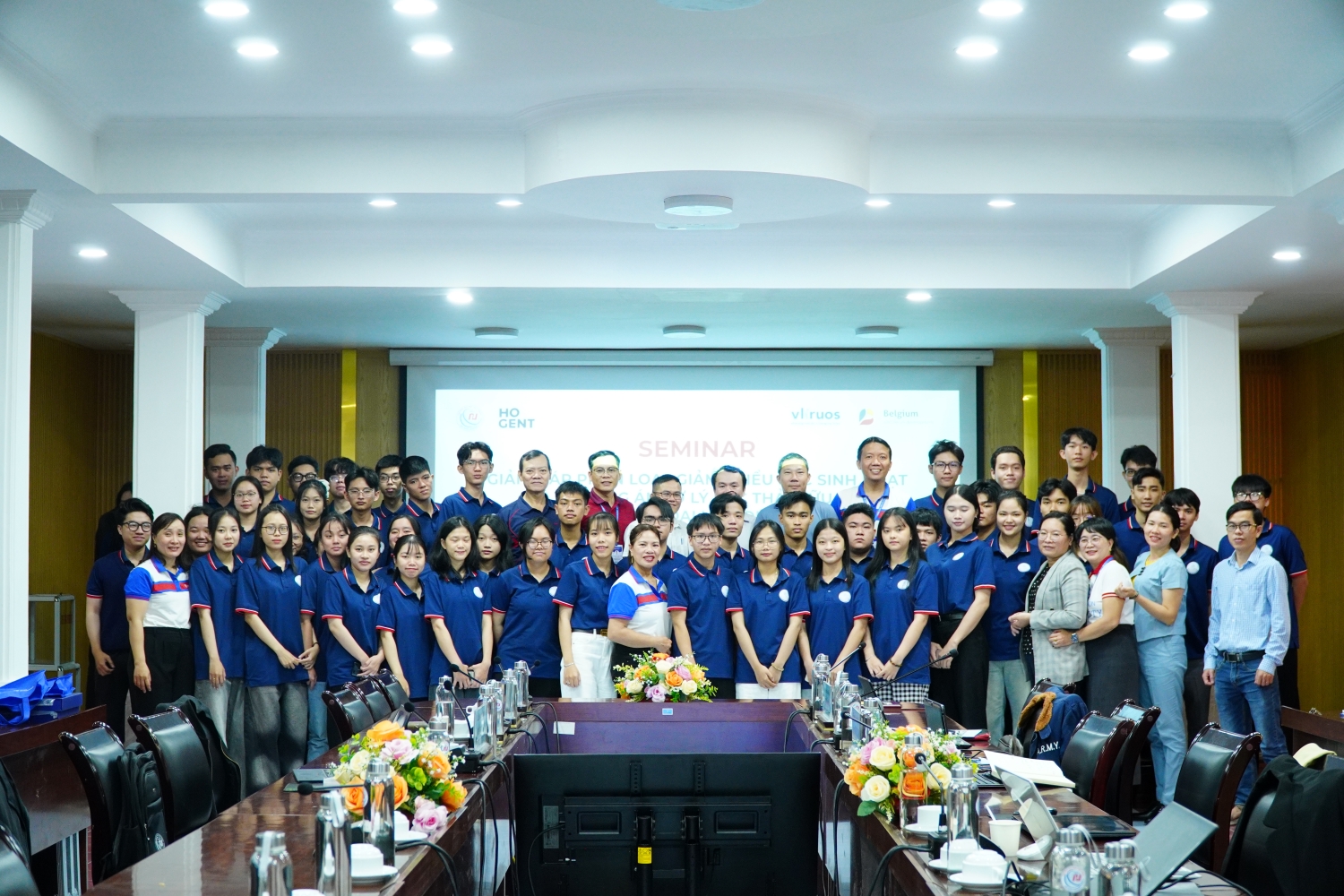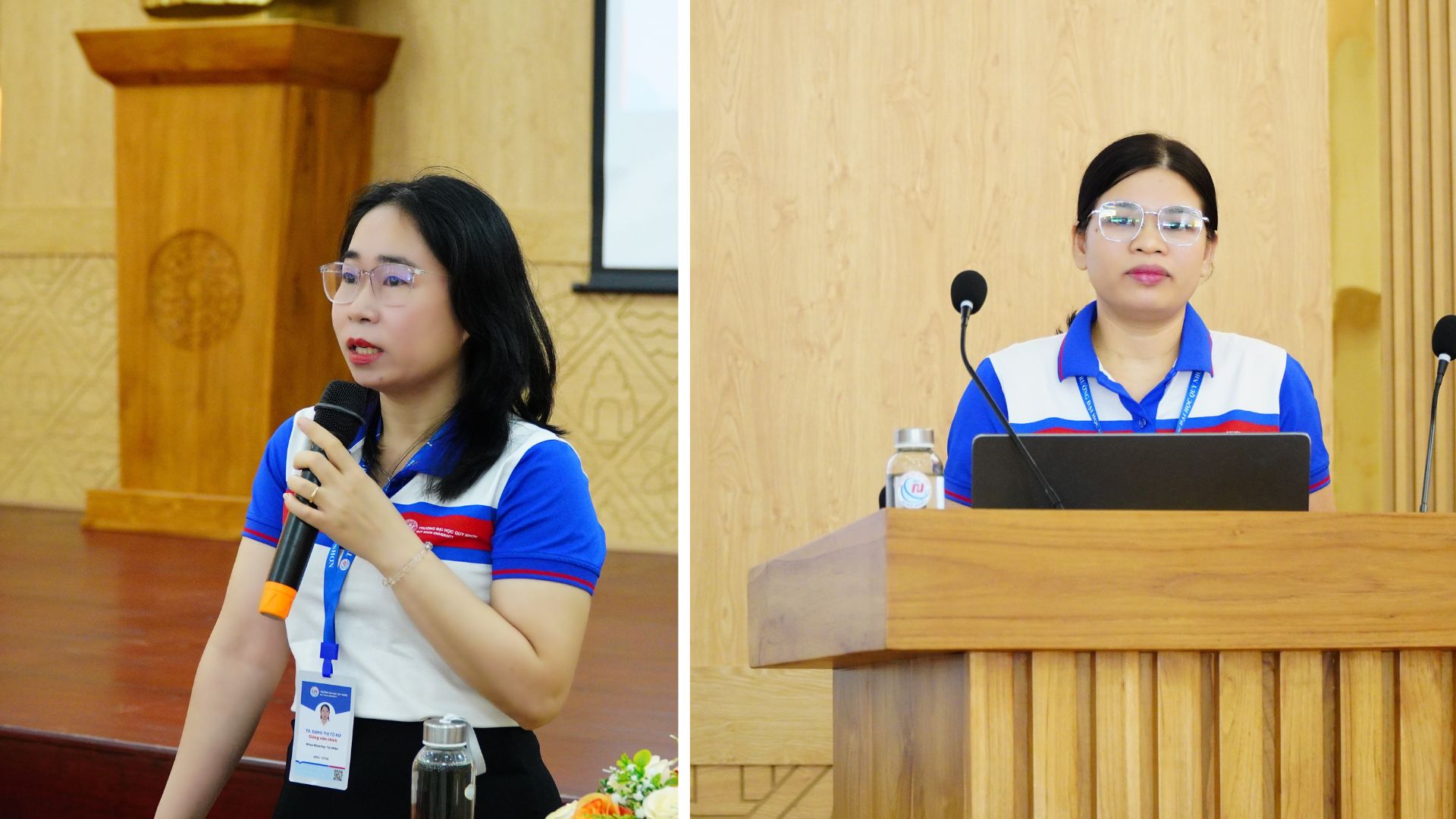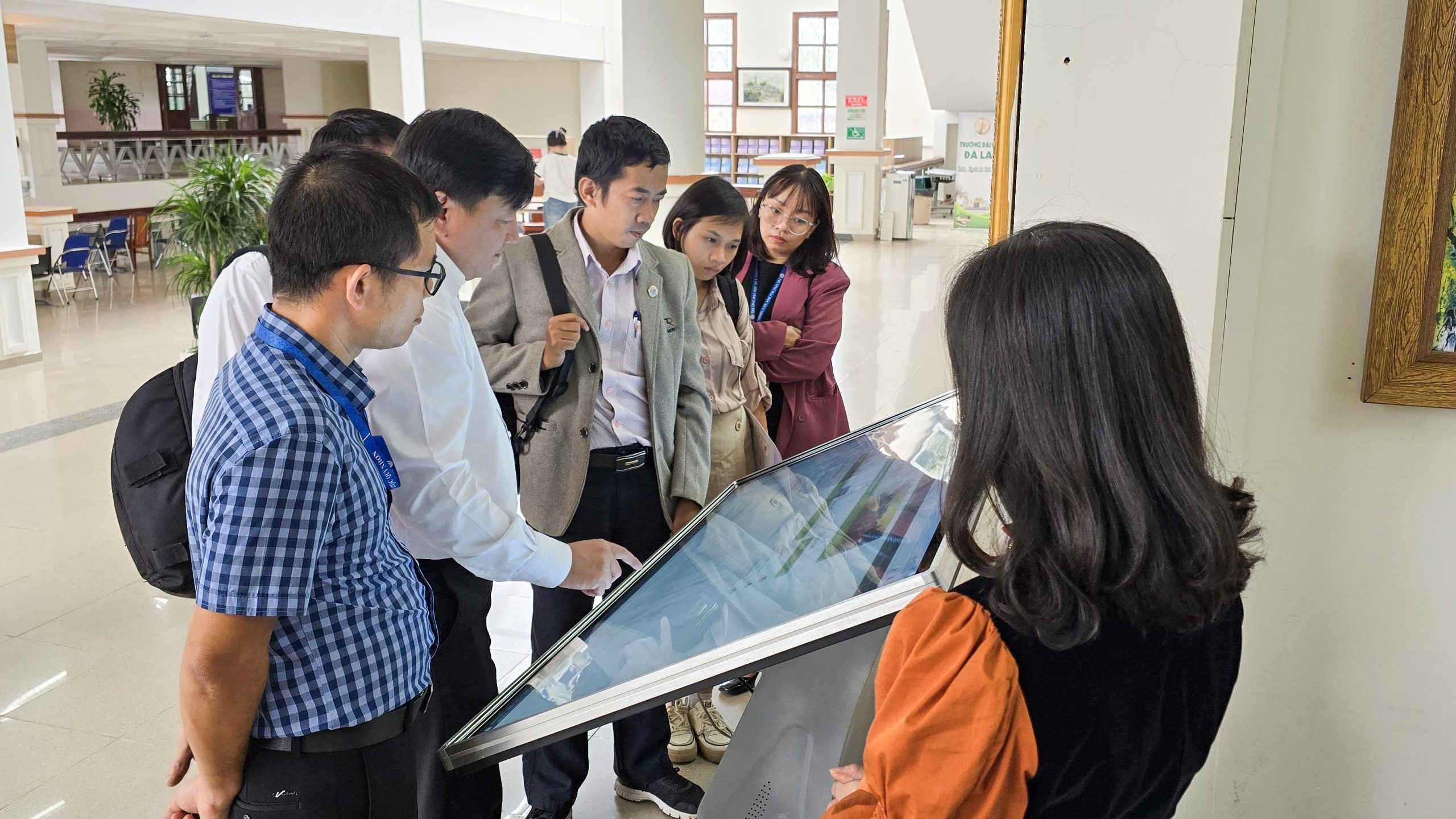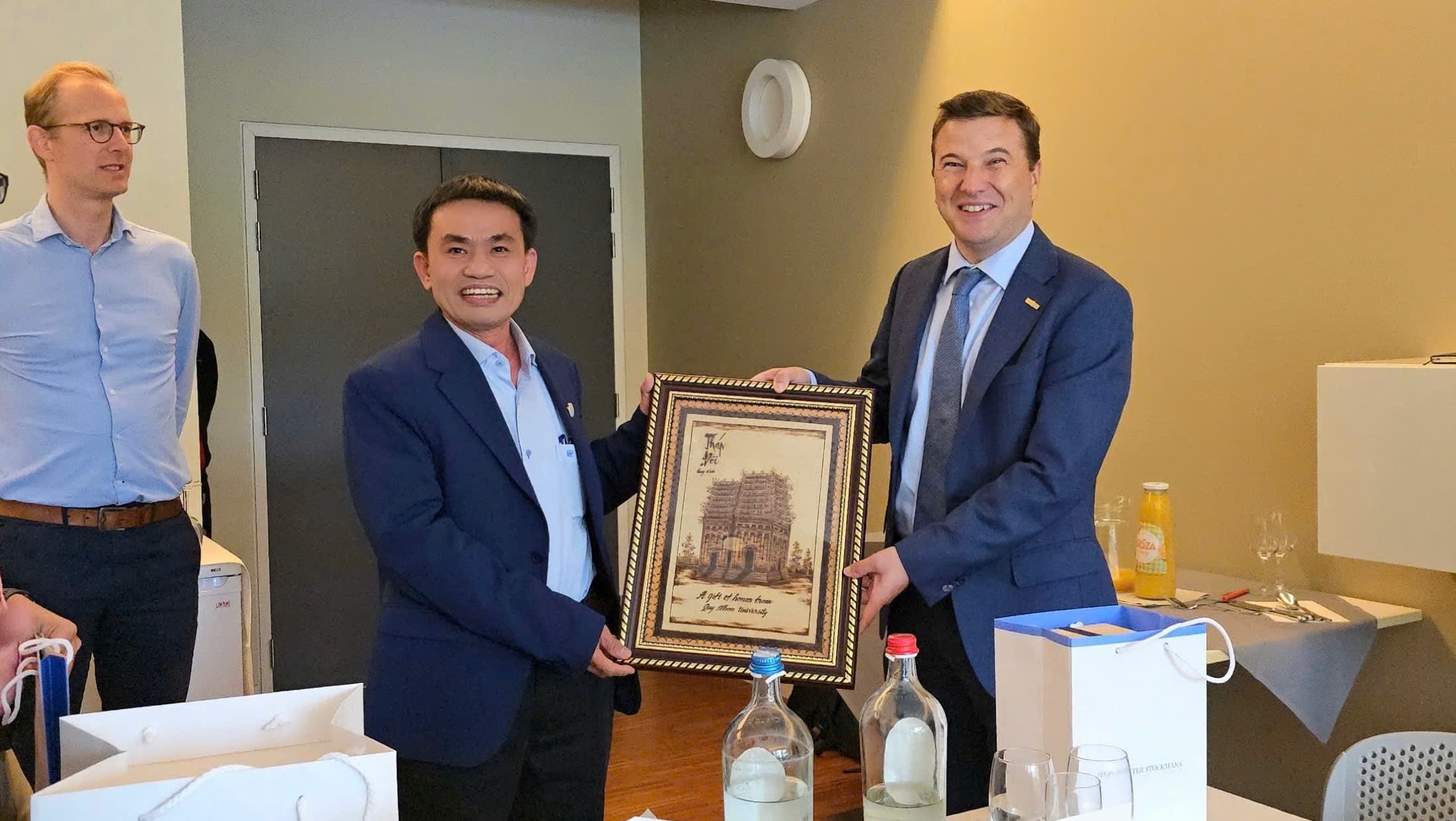Quy Nhon University held Workshop entitled “IUC – QNU Partnership and Networking with Partners and Local Authorities in South Central Region and Central Highlands”
On the morning of May 28, Quy Nhon University (QNU) solemnly organized the Workshop “IUC – QNU partnership and networking with partners and local authorities in the South Central Region and Central Highlands“. This workshop aimed to prepare for the official implementation of Phase 1 of the IUC – QNU Project from September 1, 2022 to August 31, 2027, creating the premise for the implementation of the IUC – QNU Project in the next 10 years with the title ” Improving Livelihoods and Living Conditions through the Sustainable Development of The South-Central Coast and Central Highlands of Vietnam by Enhancing the Capacity of Quy Nhon University. ”.
The workshop was attended by Mr. Nguyen Van Phuc – Deputy Minister of Education and Training; Mr. Chu Thuc Dat – Director of Local Science and Technology Development Department (under the Ministry of Science and Technology); Mr. Marc Rifflet – Deputy Ambassador of the Embassy of Belgium in Vietnam; Mr. Lam Hai Giang – Vice Chairman of Binh Dinh Provincial People’s Committee; representatives of Rikolto Vietnam, Hue University, Can Tho University, Da Lat University and Vietnam-based representatives of Leuven University. In addition, the workshop attendees included representatives of the Departments of Education and Training, the Departments of Science and Technology, and the Departments of Agriculture and Rural Development of some provinces in the South Central Region – Central Highlands, the President of Binh Dinh Union of Science and Technology Associations and representatives of DeoCa Group and Hung Thinh Corporation.
Assoc.Prof.Dr. Do Ngoc My speaks at the workshop
Speaking at the opening ceremony, Assoc.Prof.Dr. Do Ngoc My – Rector of QNU said that in the development strategy, QNU determined that by 2030 it would be an application-oriented higher education institution with high reputation, meeting the quality standards of Southeast Asia, achieve an important position in cooperation in training, research, academic and cultural exchanges, both at home and abroad, adding that in the current context of deep international integration, QNU considered promoting university internationalization the best way to reach out to the world. “January 2021, QNU is the only higher education institution in Asia selected by VLIR-UOS as a partner university to implement different phases of the IUC program, under the coordination of KU Leuven. Therefore, this worshop is particularly important to introduce QNU’s IUC Project to the community as well as an opportunity for it to connect itself with partners and local authorities in South Central Region and Central Highlands to create the premise for the implementation of the IUC QNU Project in the next 10 years,” he said.
Accordingly, QNU’s IUC project has been joined by 4 major universities in the Kingdom of Belgium: University of Leuven (KU Leuven), University of Hasselt, University of Ghent, University of Antwerp and 2 colleges: HOGent and VIVES. The project will be implemented within 10 years with the dual goal of sustainably improving the livelihoods and living conditions of residents in the South Central Region – Central Highlands and improving the training and research capacity of QNU in the fields of agriculture and food, environment and renewable energy.
Mr. Nguyen Van Phuc – Deputy Minister of Education and Training speaks at the workshop
At the workshop, Mr. Nguyen Van Phuc remarked that the IUC QNU project was completely consistent with the development strategy of QNU in particular and Vietnam’s national strategy on university autonomy, university internationalization, improvement in the quality of training, environmental protection and economic development in general. “The mission of universities is not only training and scientific research, but also community service. QNU has harmoniously and effectively combined internal capacity development with making the most of opportunities and external resources, which is completely consistent with the orientation and strategy of education and development of Science and Technology in the period 2021-2030. I believe that, with the products and results of the IUC QNU project after 10 years of implementation, it will make a great contribution to the sustainable livelihoods of people in the South Central Region – Central Highlands and the whole country. That also contributes to improving the capacity, reputation and brand of QNU with its responsibility to serve the community,” he said.
At the workshop, Assoc.Prof.Dr. Le Van Khoa – Program Manager VLIR Network Vietnam, Can Tho University and Dr. Nguyen Xuan Huy – VLIR-IUC Program Manager, Hue University shared his experience in the effective operation and implementation of these Programs. At the same time, with the dual goals that the IUC – QNU Project aims at, representatives of some provinces in the South Central Region – Central Highlands committed to creating favorable conditions and accompanying QNU in the implementation of the project.
An overview of the workshop
QNU’s IUC project consists of two main phases: Phase 1 (September 1, 2022 – August 31, 2027) and Phase 2 (September 1, 2027 – August 31, 2032), implemented with 7 sub–projects, of which 5 are research sub–projects on agricultural science, food, environment, renewable energy and 2 sub–projects on capacity-enhancing with the goal of sustainably improving livelihoods and living conditions of local residents through enhancing the capacity for training and scientific research.
| Vice Chairman of the Provincial People’s Committee Lam Hai Giang said: “QNU is one of five universities worldwide selected to implement the 10-year IUC project (2022 – 2032) sponsored by VLIR-UOS. This is an honor for QNU to be considered a reliable research and training institution in the field of science and technology. Therefore, the province will create favorable conditions for QNU to carry out its work within the IUC project in general and other programs and projects to promote the sustainable development of the locality.” |


